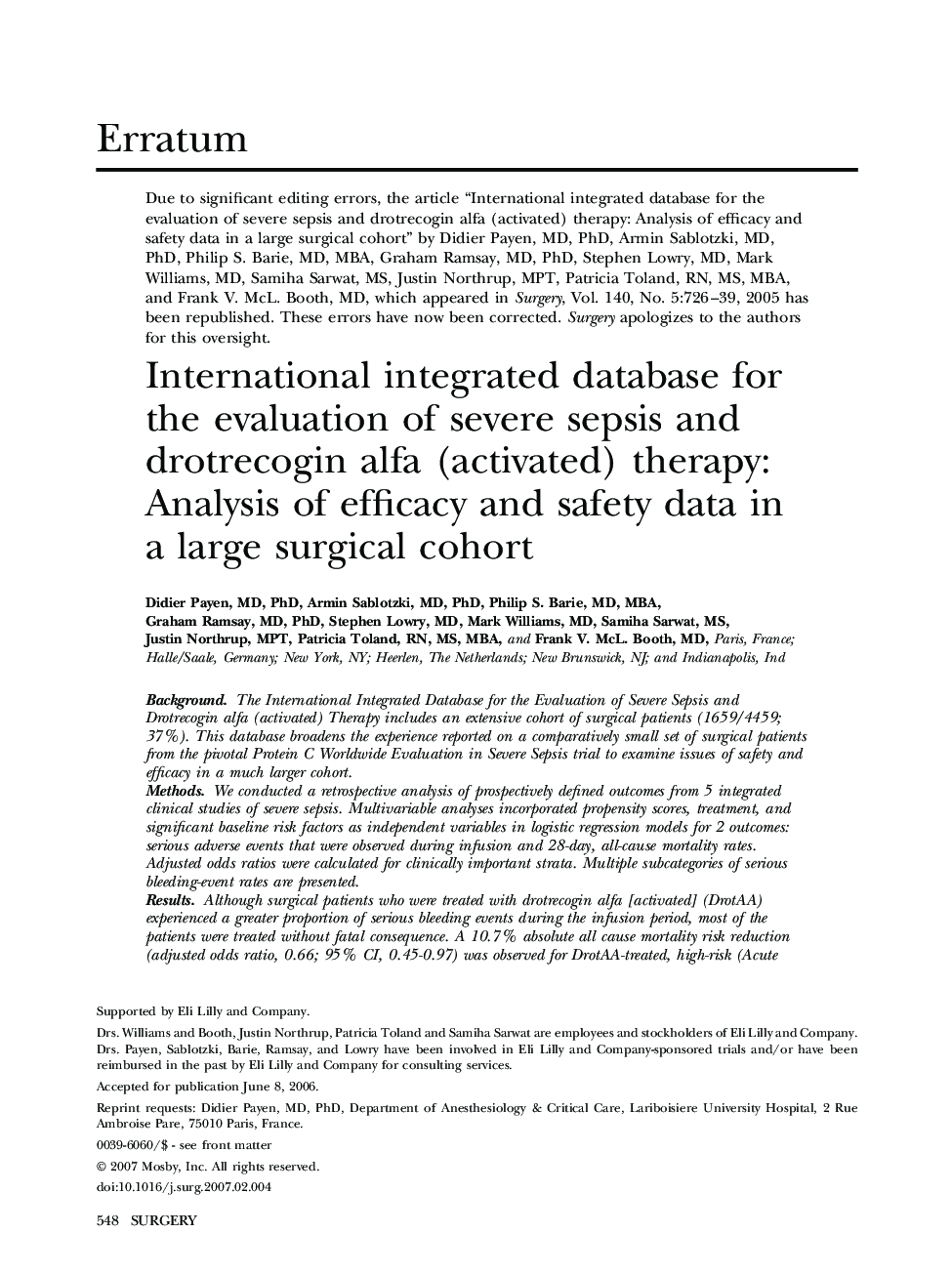| Article ID | Journal | Published Year | Pages | File Type |
|---|---|---|---|---|
| 4310408 | Surgery | 2007 | 14 Pages |
BackgroundThe International Integrated Database for the Evaluation of Severe Sepsis and Drotrecogin alfa (activated) Therapy includes an extensive cohort of surgical patients (1659/4459; 37%). This database broadens the experience reported on a comparatively small set of surgical patients from the pivotal Protein C Worldwide Evaluation in Severe Sepsis trial to examine issues of safety and efficacy in a much larger cohort.MethodsWe conducted a retrospective analysis of prospectively defined outcomes from 5 integrated clinical studies of severe sepsis. Multivariable analyses incorporated propensity scores, treatment, and significant baseline risk factors as independent variables in logistic regression models for 2 outcomes: serious adverse events that were observed during infusion and 28-day, all-cause mortality rates. Adjusted odds ratios were calculated for clinically important strata. Multiple subcategories of serious bleeding-event rates are presented.ResultsAlthough surgical patients who were treated with drotrecogin alfa [activated] (DrotAA) experienced a greater proportion of serious bleeding events during the infusion period, most of the patients were treated without fatal consequence. A 10.7% absolute all cause mortality risk reduction (adjusted odds ratio, 0.66; 95% CI, 0.45-0.97) was observed for DrotAA-treated, high-risk (Acute Physiology and Chronic Health Evaluation II, ≥25) surgical patients. We could not demonstrate a survival benefit in DrotAA-treated, low-risk (Acute Physiology and Chronic Health Evaluation II, <25) surgical patients. When surgical patients were stratified by number of organ dysfunctions, absolute risk reductions were observed in both categories: multiorgan (4.3%) and single (4.5%).ConclusionInternational Integrated Database for the Evaluation of Severe Sepsis and Drotrecogin alfa (activated) Therapy analyses affirmed the favorable benefit/risk profile of DrotAA for surgical patients. The serious adverse event rate that was experienced by surgical patients during the study drug infusion period was 7.5% in the DrotAA-treated group versus 6.3% in the placebo-treated group (odds ratio, 1.41; 95% CI, 0.89-2.25). The clinical benefit of DrotAA therapy paralleled baseline risk of death and substantiated findings from the Protein C Worldwide Evaluation in Severe Sepsis study. Future analyses are needed to evaluate the special relationships among sepsis severity, bleeding management, and the postoperative timing of DrotAA administration.
